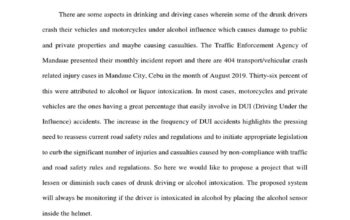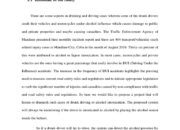Climate science, ostensibly a domain anchored in empirical rigor and methodological precision, has increasingly become embroiled in political machinations. This phenomenon, often referred to as the politicization of climate science, encompasses a myriad of factors that have collectively clouded public understanding, distorted scientific discourse, and invigorated socio-political divisions. An astute examination of these dynamics reveals the underlying tensions and biases that prevail in this critical debate, significantly affecting policy and public perception.
The nexus between climate science and politics is multifaceted, tracing its origins to the very inception of environmental policy movements in the late twentieth century. As scientific evidence elucidated the multifarious ramifications of anthropogenic climate change, the ramifications rippled through political arenas, prompting questions about ethical responsibilities, economic repercussions, and social justice. This interweaving of science and politics precipitated a bifurcation in public opinion—tied indelibly to ideological leanings. The debate transformed from a purely scientific discourse into a battleground where empirical evidence was often overshadowed by ideological commitments.
One of the primary vehicles through which this politicization occurs is the dissemination of information—or, more poignantly, disinformation. Various stakeholders, including political entities and corporate interests, have proliferated narratives that misconstrue or selectively present climate data to further their agendas. The emergence of climate denialism, characterized by an outright rejection of established scientific consensus, can be traced back to these information cascades. These narratives, bolstered by certain media outlets, serve to cultivate skepticism amongst the populace, thereby engendering confusion regarding the established scientific paradigms and hindering collective action.
Furthermore, the fundamental interpretative frameworks utilized by stakeholders have contributed to this distorted understanding. The reductionist portrayal of climate science often emphasizes isolated data points, neglecting the complex interdependencies that define Earth’s climatic systems. Aspects such as feedback mechanisms, temporal scales, and nonlinear responses are frequently eschewed in favor of simplistic, dichotomous arguments. This not only obfuscates clarity but also misrepresents the inherent uncertainties that characterize climate modeling efforts. To a lay audience, such complexities can render the science opaque, fostering a sense of skepticism towards expert opinion.
The role of social identity cannot be understated in understanding how climate science became politicized. Research delineates a marked correlation between individual worldviews, political affiliations, and acceptance or rejection of climate science. Identity politics has thus infiltrated the environmental discourse, leading to societal polarization. In this framework, accepting the scientific consensus on climate change may be perceived as a repudiation of deeply held ideological beliefs, further entrenching opposition among specific demographic groups. The conflation of scientific discourse with identity politics has rendered climate change not merely an issue of environmental concern but a litmus test for broader socio-political alignment.
The institutional response to climate change has also been mired in politicization, with particular reference to international agreements and local regulations. The formation of treaties, such as the Paris Agreement, often implicates national interests, economic competitiveness, and geopolitical posturing. While these frameworks are ostensibly predicated on scientific findings, the negotiations are frequently punctuated by tension and contention emanating from divergent national priorities. Such discord illustrates how scientific consensus can be overshadowed by competing narratives driven by economic imperatives and nationalistic pride, ultimately diminishing the efficacy of global climate initiatives.
In light of these ideological and institutional barriers, how can a more nuanced understanding emerge? One prospective avenue lies in fostering interdisciplinary approaches that integrate scientific inquiry with social sciences, humanities, and ethical considerations. This holistic perspective could elucidate not only the empirical data underlying climate science but also the cultural and socio-political constructs that inform public perception and policy response. Engaging with narratives that transcend traditional scientific communication—such as storytelling and art—may cultivate a deeper emotional resonance, facilitating greater public engagement and comprehension.
Education emerges as a critical conduit for transforming public understanding. Enhancing climate literacy can empower individuals to navigate the complex interplay between facts and fictions surrounding climate science. When the general populace is equipped with robust analytical tools and fosters critical thinking, the susceptibility to misinformation diminishes. Furthermore, cultivating an ethos of scientific inquiry that appreciates uncertainty can ameliorate resistance to accepting scientific consensus.
The future of climate science hinges on re-establishing a coherent dialogue that transcends political entrenchments. As societies navigate the exigencies of climate change, a collective commitment to prioritizing evidence-based discourse is essential. By reframing climate change not merely as a political issue but as a shared human predicament, an avenue for collaborative action may open. By fostering a culture that values scientific integrity over political allegiance, the path towards sustainable policies may become clearer. In summation, while climate science has invariably intertwined with political contexts, there lies a potent mandate to transcend these barriers—empowering humanity to confront one of the greatest challenges of the 21st century with unity and resolve.











